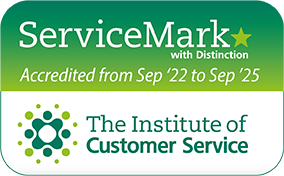If you have received an e-mail asking you to complete a survey from the ICS, please click here to read more about this request.
There are many different types of mortgage products available in the market place which calculates interest in different ways.
Interest rate options commonly found across different UK lenders
Remember: not all lenders offer products which fall into each of these categories, therefore make sure you check your chosen lender's full product listing for further information.
Variable rate
A variable rate mortgage has an interest rate that can fluctuate. If the mortgage interest rate falls, your monthly mortgage repayment reduces but if the mortgage interest rate goes up, so does your monthly repayment. All lenders have a standard variable rate (SVR) on which they base their variable mortgage products. We will decide when to increase or decrease this standard rate.
Discounted rate
With a discounted rate mortgage, the lender’s SVR is discounted for a specified period of time, usually 3 or 5 years. The discounted rate could be a set amount for a specific term or be ‘stepped’, for example, a 2% discount in year one and a 1% discount in year two. The interest rate will vary when our SVR moves up or down but the amount of discount will remain the same.
Fixed rate
A fixed rate mortgage has an interest rate which stays the same for a set period of time, usually 3 or 5 years. During the fixed rate period your monthly repayments stay the same. At the end of the fixed rate period the interest rate will change, usually to our SVR.
Tracker
Tracker rates are another form of variable interest rate, usually linked to the Bank of England’s base rate or another externally set rate. The interest rate is usually a specified percentage above or below the external rate for a specified period of time.
Capped rate
With a capped rate mortgage, the interest rate is variable and has an upper fixed limit for a specified period, known as a ‘cap’. If the variable rate exceeds the capped rate, you benefit by paying the capped rate. If the variable rate falls below the capped rate, you pay the variable rate. Some capped rate mortgages have a floor. This means that the lender sets an interest rate which the mortgage cannot fall below.
Flexible
Some mortgage lenders today offer a more flexible approach to mortgage borrowing, for example, by allowing mortgage overpayments, offering daily interest charging or even allowing payment holidays where the borrower has built up enough surplus credit that would allow a payment holiday to take place.
To find out more information about the mortgage process, you can download our booklet ‘Mortgages Explained'. Alternatively, visit our mortgage page for a full listing of our mortgage products.
If you'd like to talk to us about a mortgage, pop into your local branch or book an appointment with a qualified mortgage adviser.
YOUR MORTGAGE IS SECURED ON YOUR HOME. THINK CAREFULLY BEFORE SECURING OTHER DEBTS AGAINST YOUR HOME. YOUR HOME MAY BE REPOSSESSED IF YOU DO NOT KEEP UP REPAYMENTS ON YOUR MORTGAGE.






